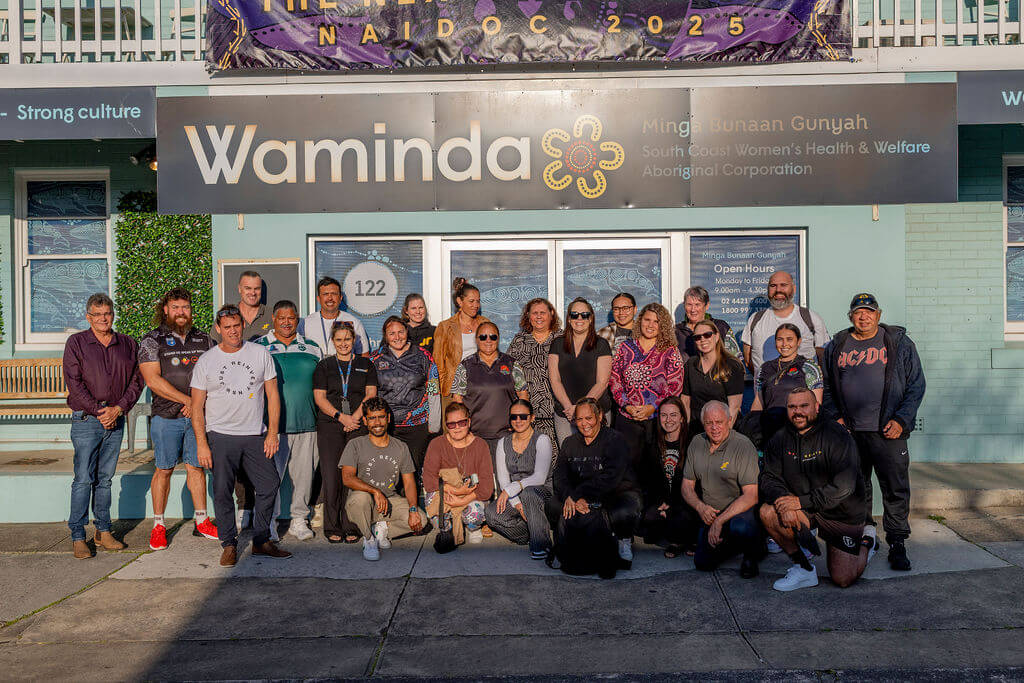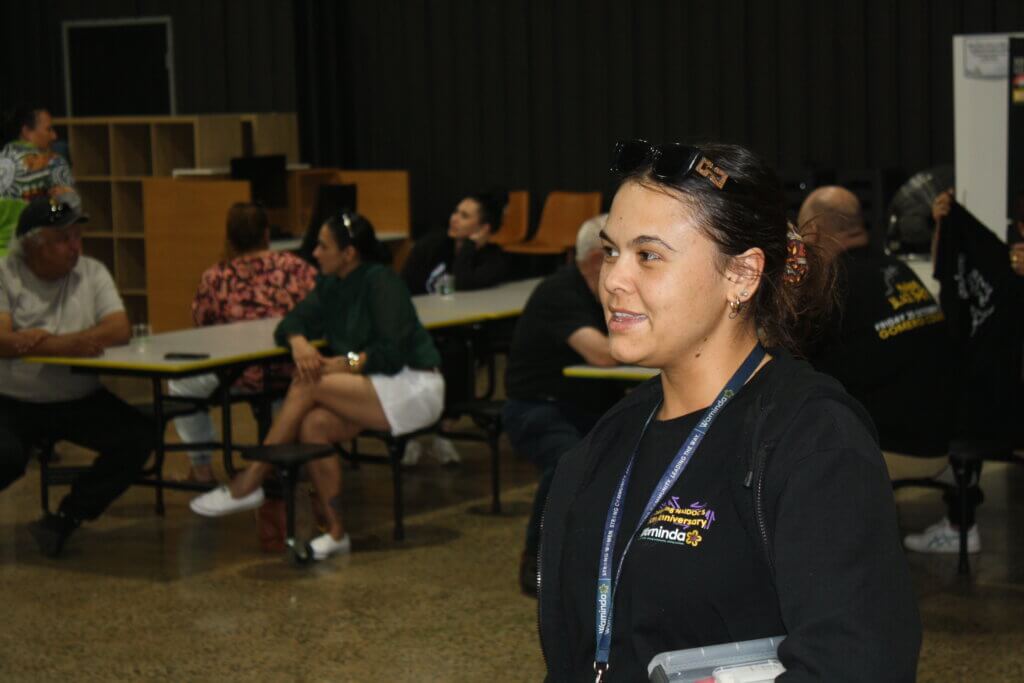NEW VIDEO – JR Community of Practice in Nowra Reinforces Sharing of Knowledge and Experience Across NSW Communities

Across three days in September, seven community organisations involved in justice reinvestment (JR) initiatives came together for the first community-hosted JR Community of Practice meeting in New South Wales; co-hosted by Just Reinvest NSW (JRNSW) and Waminda South Coast Aboriginal Women’s Health & Wellbeing Coorporation.
Aboriginal community representatives from Bourke, Bathurst, Cowra, Kempsey, Toomelah, Moree and Mt Druitt visited multiple sites around Nowra to see how Waminda’s extensive programs were addressing the needs of young people through programs designed to engage them in positive cultural, health and wellbeing, and skills/career development.
Also on the agenda was how the power and purpose of data is making the difference in understanding the root causes of engagement with the systems that are heavily involved with many young Aboriginal people. “Some of the communities who are new to JR are only just starting their journey with data; monitoring evaluation and learning – so one of the takeaways from this Community of Practice meeting is a high priority in this space for JRNSW in the coming months and years,” said Geoff Scott, CEO JRNSW.
Waminda’s experience is an important example of leveraging long-term community-led impact
Waminda has several youth programs that act as circuit breakers which are managed by a ‘Beehive’ team and a ‘JR team’ of two co-managers, a data officer, two caseworkers and a project support worker. The ‘circuit breaker’ style programs serve to support Aboriginal people navigate systems and grow their life choices; such as the Education & Employment Pathways & Social Enterprise Service where in-school traineeships and paid learning opportunities help inviduals gain valuable vocational skills and support for life skills development.

The meeting also gave communities in attendance the opportunity to share how they are progressing with their unique justice reinvestment strategies, the success stories and different approaches to tackling the overrepresentation of Aboriginal people in the criminal justice system. We also discussed the local challenges and systemic bottlenecks to furthering some of the preventive, diversionary and reintegration programs that Aboriginal organisations are undertaking. Also on the agenda was how the power and purpose of data is making the difference in understanding the root causes of engagement with the systems that are heavily involved with many young Aboriginal people’s lives on a daily basis.